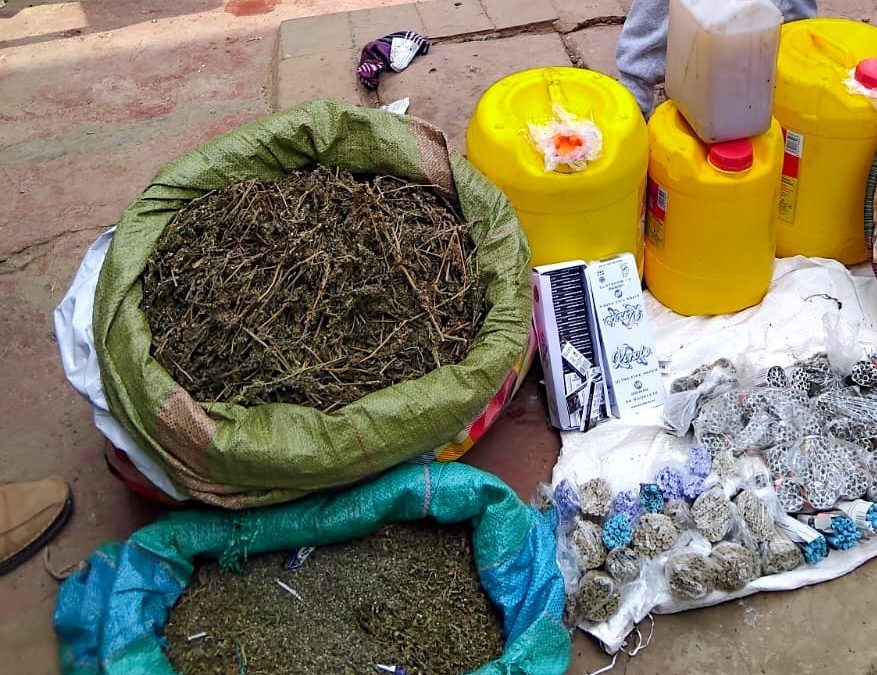Police officers in Kiambu County have arrested four suspects and confiscated a large consignment of illegal substances during a major operation in Juja Sub-County. The raid, carried out in the Matangi area following a tip-off, led to the recovery of more than 2,800 rolls of cannabis alongside other outlawed products.
During the operation, the officers seized 2,085 rolls of cannabis, 8 kilograms of unprocessed cannabis, 30 litres of chang’aa, 20 litres of muratina, and Ksh9,580 in cash believed to be proceeds from the illicit trade. The four suspects, described as notorious drug traffickers, were immediately placed in custody and are expected to be arraigned in court on Monday, September 8, 2025.
Authorities highlighted that the raid was part of ongoing efforts to dismantle networks involved in the trafficking and sale of narcotics within the region. The successful crackdown was made possible through collaboration with members of the public who provided timely information about the suspects’ activities.
The operation underscores the increasing concern over the trade of illegal substances in Kiambu County, which has seen a rise in organized distribution networks targeting urban and peri-urban areas. Police have assured the public that similar operations will continue as part of a broader campaign to curb the circulation of narcotics and illicit brews.
This latest crackdown comes shortly after another operation in Trans Nzoia County, where officers recovered 20 kilograms of suspected cannabis sativa valued at approximately Ksh200,000. In that case, police encountered two individuals transporting the drugs on a motorcycle without visible registration plates. The suspects abandoned their motorcycle during a pursuit, leaving behind a sack filled with cannabis.
Both incidents highlight the persistence of illegal drug trade in different parts of the country. Authorities have urged residents to remain vigilant and continue sharing information that could help in the fight against narcotics. The coordinated efforts between law enforcement and the public are seen as crucial in reducing the availability of harmful substances and safeguarding communities.

